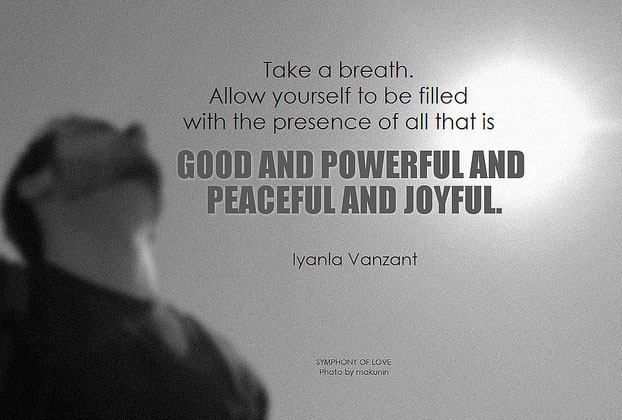5 Ways To Respond Instead Of Reacting

It is a difficult situation indeed, when trying to control our words when we are angry. Our heart keeps pounding and wants to vent its anger on the person in front of us making us even angrier. But remember that angry words, spoken or written messages sent in anger are not pleasant, and cannot be taken back. Once you’ve vented your anger, the only thing left is regret, after bearing the wrath of hurting someone. A better choice would be to respond in a controlled way rather than reacting. Read about these 5 keys to learn how to respond rather than reacting.
1. Walk Away

Photo by (added text) Rocky Lubbers, CC BY 2.0
We face such situations everyday that forces us to lose temper. Things might not be working out as we had thought. Child tantrums when you want to concentrate on work, a teenage son not ready to listen, spouse expecting more than ever, problems with colleagues or boss at work, a friend pointing out your wrong decisions – it can be anything that makes you angry. But at that moment, a mind full of angry thoughts can be best calmed down by leaving the spot and walking away a peaceful distance. It gives you time to let the negative feelings flow away. The difference is noticeable after a few minutes and saves you a lot of unnecessary stress that might have aroused, had you decided to have a heated argument.
2. Count From 1-10 And Take a Deep Breath

Photo by BK, CC BY-SA 2.0
Before speaking out and reciprocating in anger, a good idea is to count till 10 and take a deep breath and collect wiser words to utter. It definitely turns out to be a more logical and mindful way to tie our tongue in an angry mood. Deep breathing has always been promoted as a part of self-control techniques. It relaxes your tense muscles, eases out the tension and calms down your nerves. Communication becomes easier after that pause, as both the involved parties learn to analyse the matter. It may turn out to be a petty matter that you were just blowing up to vent out your internal unrest and stress. So, try it out while responding the next time you do not like something someone said to you, for a happier outcome.
3. Try To Find The Hidden Truth

Photo by QuotesEverlasting, CC BY 2.0
If something is not happening the way you want or if someone is expressing something, with which you do not agree, it is a common phenomenon that happens to everybody. Most of the times, your partner or the next person doesn’t mean to hurt you. It might be an expression which has been chosen out of anger, frustration, irritation, misunderstanding or loneliness. If you look beyond the words and seek the actual hidden reason, it will help you give a wider and more logical perspective of things. You will be able to immediately relate to the person’s mindset and the reason that urged him or her to speak in a negative tone. You can then work on the root cause with a problem-solving approach and resolve inner conflicts with ease.
4. Appreciation

No two people on this earth can think exactly alike. Instead of viewing it as the problem, appreciate this fact. Even if you think you understand your partner very well, he or she will tend to disagree with you at some point of life. However like-minded friends you choose, there will surely be difference of opinions in all walks of life. At work, everybody has their own personal and professional goals, so the separation of views is natural. Learn to accept this difference and it would help you to digest various voices and judgements. It will be easier to respond less negatively when you are in that state of mind. This does not necessarily mean you have to be happy with whatever one says to you. But yes, this sensible appreciation of difference of personalities is definitely going to control the way you react to untoward situations.
5. Sense Of Humour

Photo by (cropped) Funny Images, CC BY 2.0
It is a good practice to develop a ‘rational’ sense of humour during our interaction with other persons. Laughing away instead of gnawing when you are angry at someone is not at all easy. It will take a lot of patience, self control and determination to think of a sensible joke and laugh it off when you are amidst a hot conversation. But it is a good way to come out of that unwanted scene without hurting and getting hurt. Humour has to be used cautiously too, as too much of it or the wrong timing can easily break the line between humour and sarcasm. You have to be careful in selecting the right kind of joke or one liner so that your response does not sound sarcastic. Else, it might be as hurtful to the other person as angry words. Practice sensible humour at just the right instance, so that you come out unscathed without hurting anyone’s feelings.
The difference between ‘reacting’ and ‘responding’ is that the former results in a vicious cycle of unnecessary anger and hurting emotions, whereas the latter helps in a happier landing from uneasy everyday situations. Make sure you follow the above tips to control your emotions and turn any stressful situation to a blissful one.